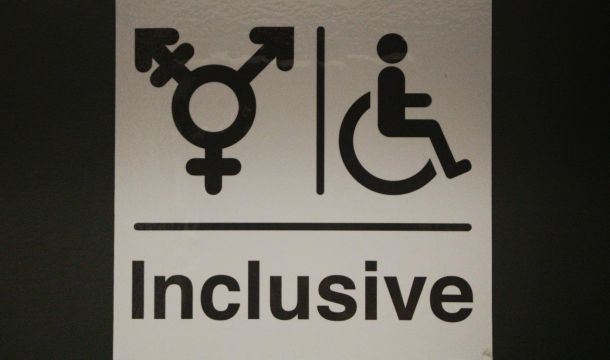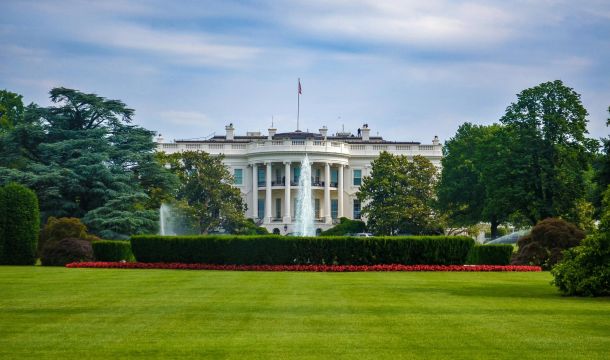Many politicians are running on pro-union platforms and often say unions are good for our economy. But look at what is going on right now, with strikes in process at Boeing and recently the Eastern and Gulf Coast dock workers. Looking at the dock workers first, the union rejected a 50% wage increase offer over six years, along with major improvements in benefits. The International Longshoremen's Association (ILA) wants to raise the base hourly rate for its roughly 45,000 members to $69 from $39, a 77% pay increase, over these years. They also want to limit automation, which the union wants to prohibit, making the dock workers less efficient. The U.S. General Accountability Office reported earlier this year that the top 10 U.S. ports are already behind in automation compared to foreign ports. The World Bank ranks U.S. ports among the least efficient in the world. In the financial year that ended in 2020, more than half of the dock workers at the Port of New York and New Jersey earned more than $150,000 a year, and one in five dock workers earned over $250,000 back in 2020. The cost of benefits runs almost $100,000 a year as well.
J.P. Morgan estimates that the port strike will cost the U.S. economy between $3.8 billion and $4.5 billion a day. The American consumer will come up short, inflation will increase, and the union head tells management, "I will cripple you." The union leader making this statement made more than $900,000 last year himself, owns a 76-foot yacht, and drives a Bentley car. This same union leader was prosecuted two decades ago for alleged ties to the Genovese crime family but was acquitted at trial in 2005.
President Biden responded to the situation, "Now is not the time for ocean carriers to refuse to negotiate a fair wage for these essential workers while raking in record profits." Donald Trump is not in disagreement when he said, "American workers should be able to negotiate for better wages, especially since the shipping companies are mostly foreign-flag vessels."
It should be noted that the reason most ocean carriers are foreign is because union work rules and high costs in the U.S. have stopped ship building in the U.S. This is not only adversely affecting our economy, but also our defense, as the U.S. Navy can no longer depend on U.S. production of military ships. The inefficiency and high cost of the American workforce is affecting our nation's ability to accomplish many worthwhile tasks, not only our defense, but also in infrastructure improvements and even climate control. To add on top of the cost of doing business in the U.S. today, the red tape in getting government approvals and the like, we are at a distinct disadvantage in keeping America the world leader. The new infrastructure and technology Congressional initiatives give, in this writer's opinion, too much preference to union employers, to the detriment of our country and the 94% of the American workforce that do not belong to a labor union. General government contracting rules are designed to require government contractors to pay union wages, and project labor agreement requirements in construction basically require union contractors.
After three days of striking, an agreement was announced which will include a pay increase of about 62% and the contract will be extended through January 15, 2025, to address other issues, including the critical automation issue. The interim deal avoids a potential serious political issue for the campaign of Vice President Harris as otherwise the situation would have required her to confront a crippling strike of the union constituency she is courting. According to reports, the tentative deal will result in dock workers at the New York-New Jersey port earning more than $500,000 a year on average. According to data recently released by the New York State Comptroller, this makes dock worker salaries higher than in Wall Street's securities industry.
According to The World Bank, the consequence of low port productivity is that "instead of facilitating trade, the port increases the costs of imports and exports, reduces competitiveness, and inhibits economic growth." Not one U.S. port ranks in the top 50 globally in productivity.
At the same time, unions are also striking Boeing, where the union has already turned down a 30% pay increase over four years. At Boeing, the Machinists Union wants a 40% increase plus a restoration of defined-benefit pensions that were stopped a decade ago. Boeing has offered almost $10,000 a year in 401(k) contributions, far more than most employees receive in the U.S. This offer is especially generous after Boeing has lost more than $25 billion over the last six years. Indeed, the union seems to want to take advantage of Boeing's financial situation to force a gigantic settlement. A Boeing tactic backfired when it quickly presented a 30% pay raise directly to workers with an ultimatum to respond, but union leaders refused to schedule a vote and criticized Boeing for going directly to the workers. They say the tactic gave union members the belief that they've got the upper hand, and the union has backtracked going back to some of its original demands of 40% pay raises and reinstating defined benefit pensions rather than 401(k)s.
The unions claim that the laws are skewed against them, but the monopoly power granted to unions under the labor laws actually puts the laws more on their side. These laws give unions monopoly power that would violate the anti-trust laws in any other comparable situation.
This article is part of our November 2024 Newsletter.
View newsletter online
Download the newsletter as a PDF
Related Content
Get Email Updates

New Salary Rule Passes Its First Test, but Litigation Still Progresses

Employers Beware - Overlooked Issues Dealing with Maternity Leave and Military Leave

The Economist, the Oldest Magazine in Continual Publication, Publishes America Becoming Less "Woke"

Pro-Union Policies Are Hurting America

On-line Job Applications Can Create Issues of Lack of Agreement to Onerous Terms

